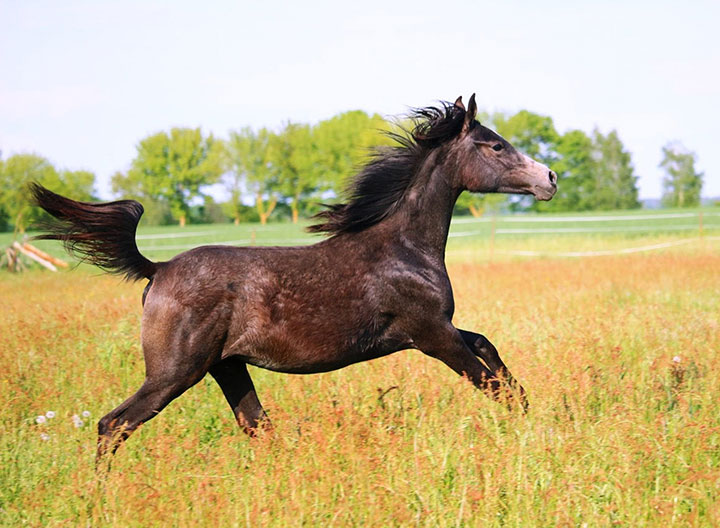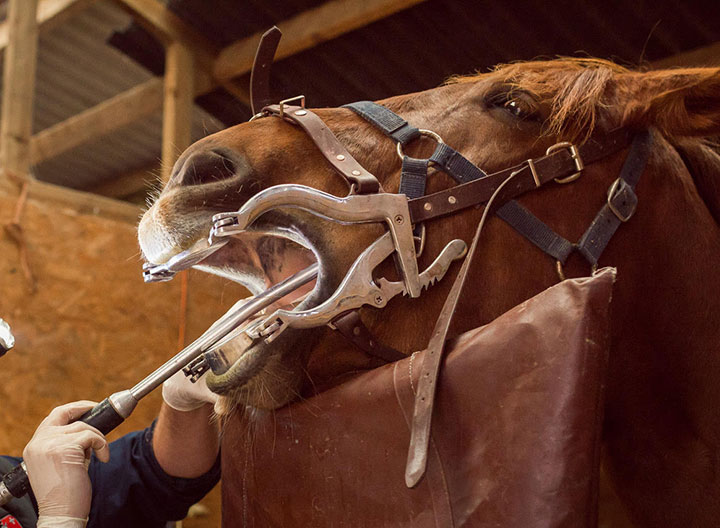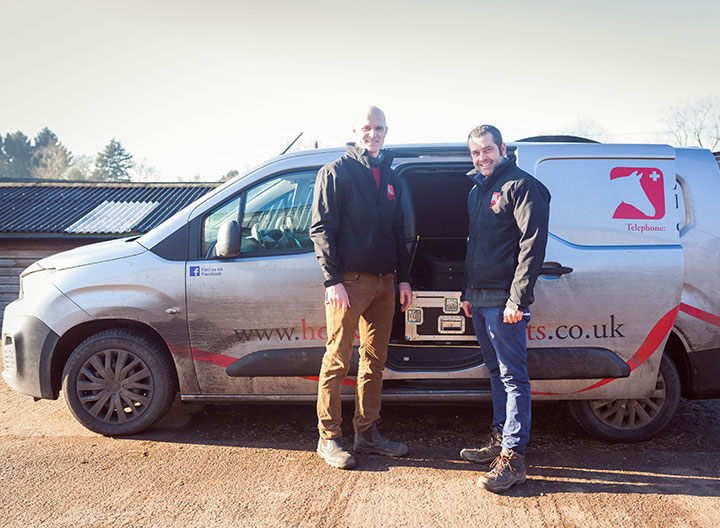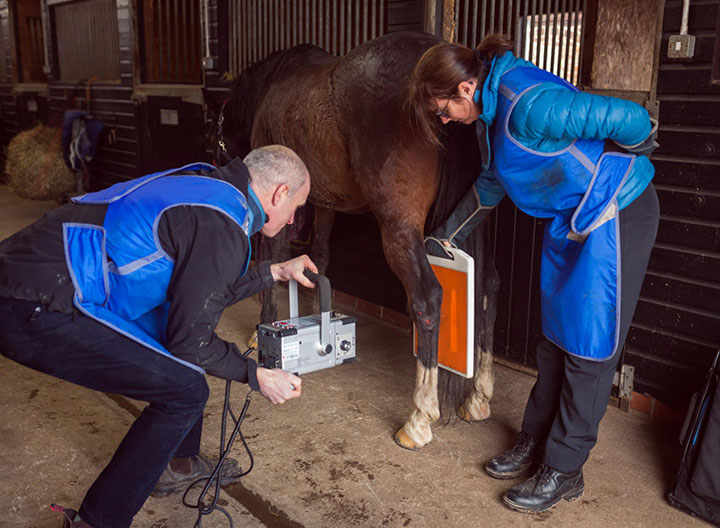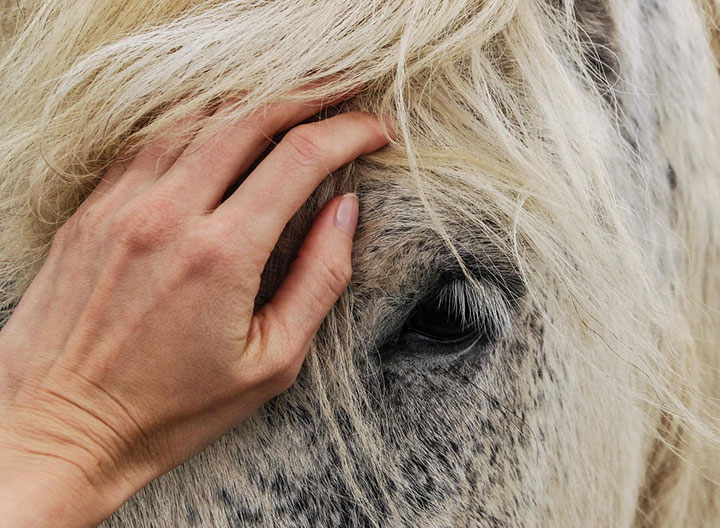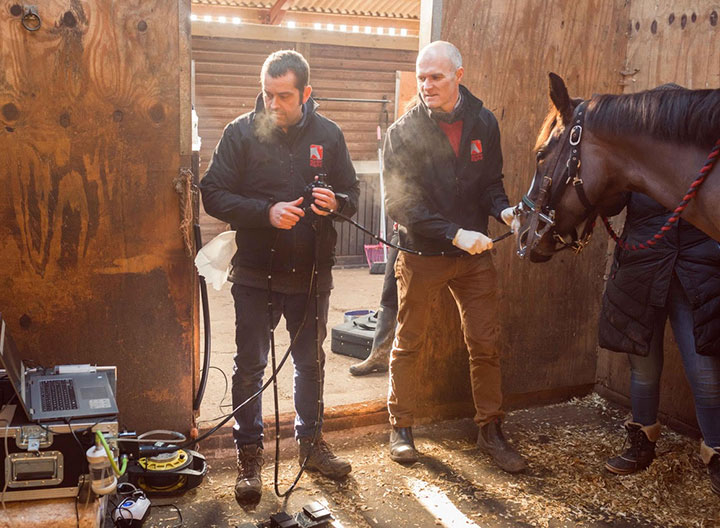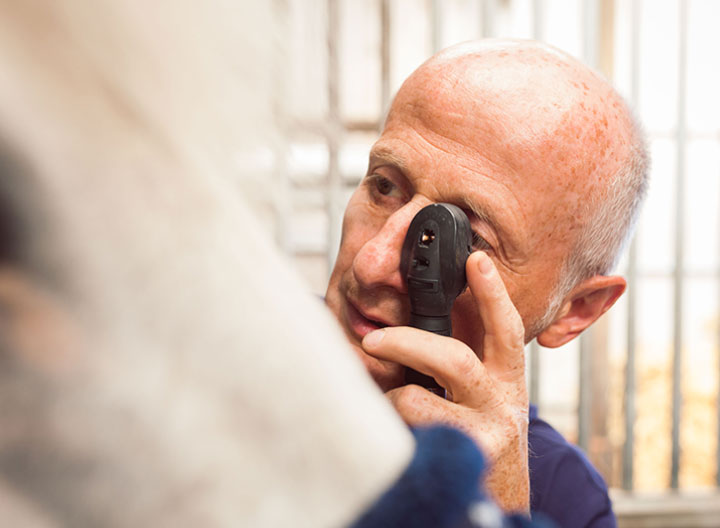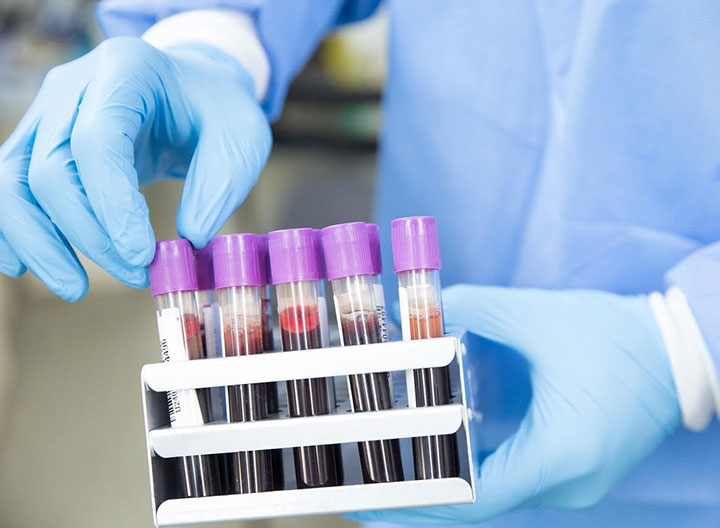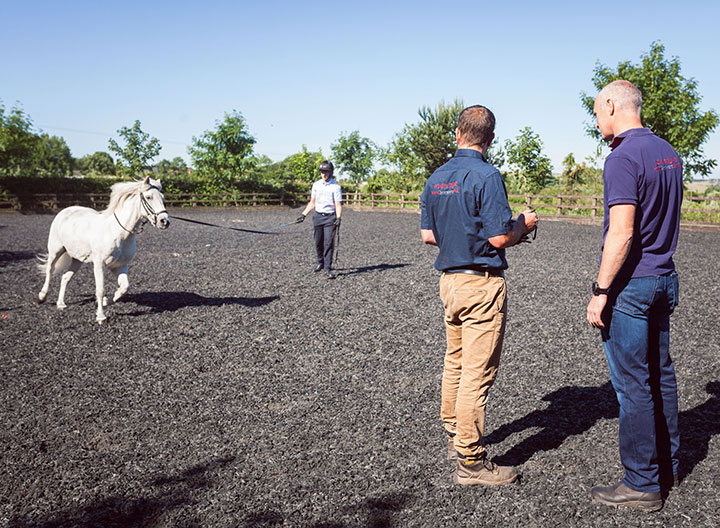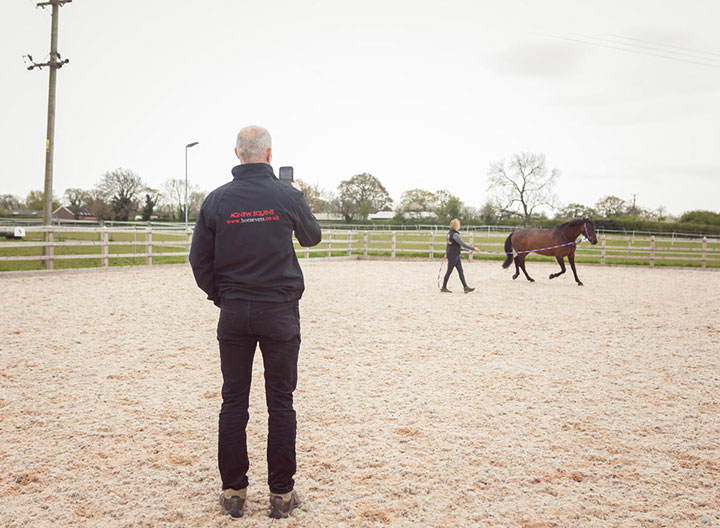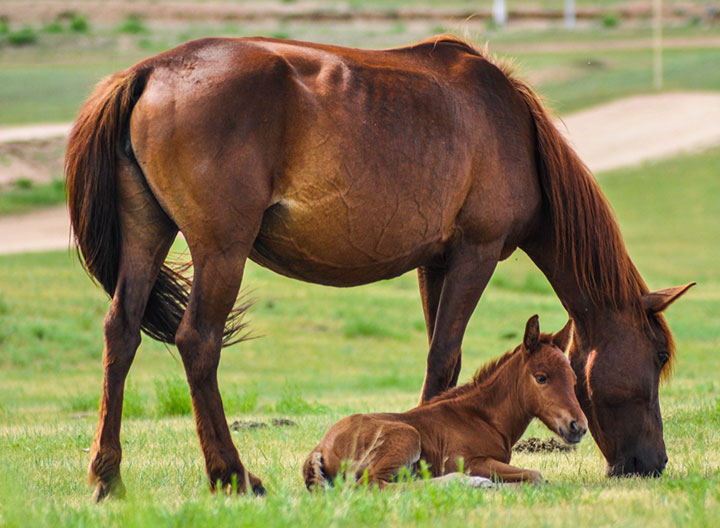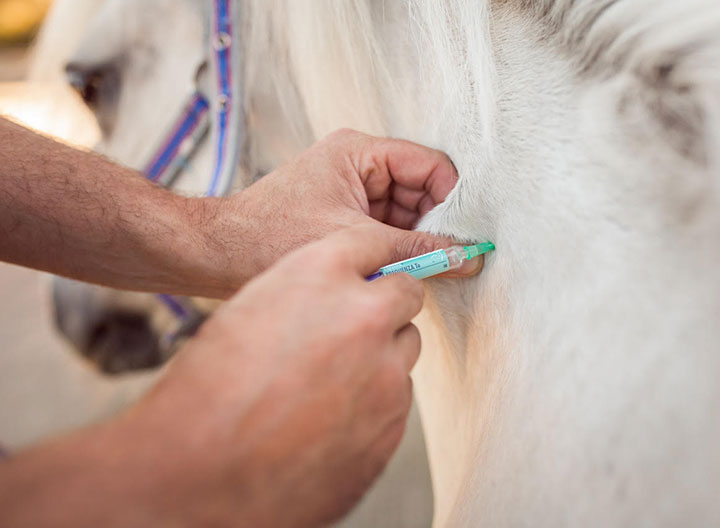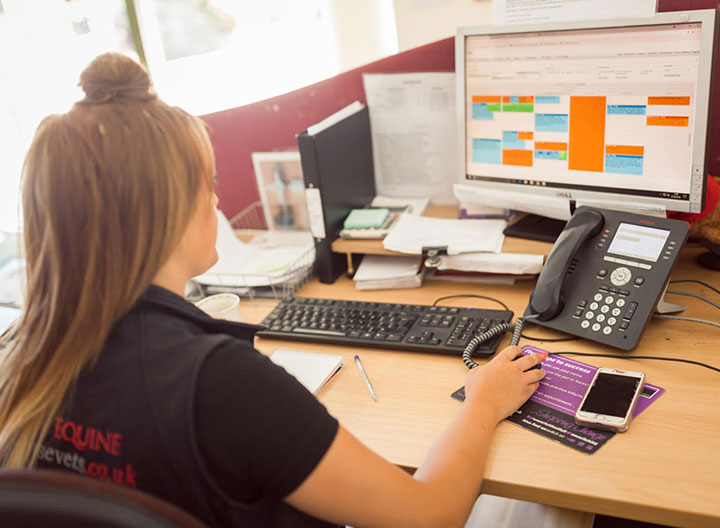Dental Care
Dentistry is a vital part of the routine care of your horse, and we recommend that your horse’s mouth and teeth are examined at least once a year; however some individuals with specific abnormalities may benefit from more regular examinations. Our vets are all experienced in equine dentistry and are equipped with gags, head torches, head stands, mirrors and a selection of hand and motorised rasps.
As vets, we are able to perform equine dental care under sedation. There are a lot of benefits to working under sedation, but the biggest plus for us is that a sedated horse allows our vet to thoroughly explore your horse's mouth to inspect for any abnormalities or early signs of pathology without the fear or discomfort some horses may experience. We can take the time to have a good look around with our torches lighting up the oral cavity to comprehensively check for anything that shouldn't be there. As routine dental exams often happen only once a year, it is a great opportunity to a check on the overall health of your horse's mouth
Why is Routine Dental Care Essential?
- Horse’s teeth erupt (do not grow) over most of the horse’s life at a rate of 2-3mm/year
- The lower jaw of the horse is narrower than the upper jaw, which can predispose to the development of sharp enamel points on the outside (buccal) aspect and inside (lingual) aspect of the cheek teeth.
- The rate of eruption is normally balanced out by the rate of wear achieved from the horse’s natural circular chewing action when eating large volumes of grass and fibre.
- Feeding increased levels of concentrate feed and lower quantities of fibre will result in a reduced chewing action, causing less wear and can lead to dental overgrowths and sharp enamel points that can cause ulcers and lacerations to the tongue and inside of the mouth.
- The sharp enamel points can be made increasingly more painful by bridles and bits which press against the sharp points.
- When a horse works on the bit it needs to be able to drop the lower jaw forward, which any overgrown teeth will prevent.
Recognising Dental Problems
Horses with dental problems may show obvious signs, such as pain or irritation, or they may show no noticeable signs at all. This is due to the fact horses are stoic animals, and some simply adapt to their discomfort. For this reason, periodic dental examinations are essential. Indicators of dental problems include:
- Halitosis (bad smelling breath)
- Dropping food (quidding) while eating, difficulty with chewing, or excessive salivation
- Loss of body condition/ Weight loss
- Large or undigested feed particles (long stems or whole grain) in manure
- Head tilting or tossing, bit chewing, tongue lolling, evading the bit, or resisting bridling
- Poor performance, such as lugging on the bridle, failing to turn or stop, even bucking
- Foul odour from mouth or nostrils, or traces of blood from the mouth
- Nasal discharge or swelling of the face, jaw, or mouth tissues
- Colic/ Choke
Common Dental Problems
- Abnormal wear patterns with sharp enamel edges on both the lower and upper check teeth. This can cause painful ulcers and erosions of the soft tissues of the cheek or tongue
- Overgrowth is either secondary to a misaligned jaw (parrot mouth) or as a result of a missing tooth
- Fractured, displaced, loose or missing cheek teeth
- Diastema (gaps between the teeth where food collects) causing gum disease
- Caries: tooth decay
- Tooth root abscess
- Retained deciduous (baby) teeth
- Blind (un-erupted) or abnormally large or displaced wolf teeth
- Abnormalities of the incisors
Will My Horse Be Sedated?
When rasping, accuracy is important when using either manual or automated tools and it is easier to be precise with these tools if the horse's head stays relatively still. Non-motorised rasps could potentially damage soft tissues if the horse’s head jerks or moves, so while it may feel counter-intuitive to some, a motorised tool on a sedated horse allows for much greater control and precision. Equally, all of our vets have experience with both hand floating techniques as well as the use of motorised dental equipment and both techniques have a place in practice depending on the specific needs of the case and preferences of the horse.
Our vets are so experienced with using sedatives, and they can be used safely and side effects are rare. Some owners have concerns about sedation and we understand that. If this is something you'd like to discuss or if you have anything you'd like clarified with regards to dentistry by our vets, please don't hesitate to contact us on 01782 510 502.

